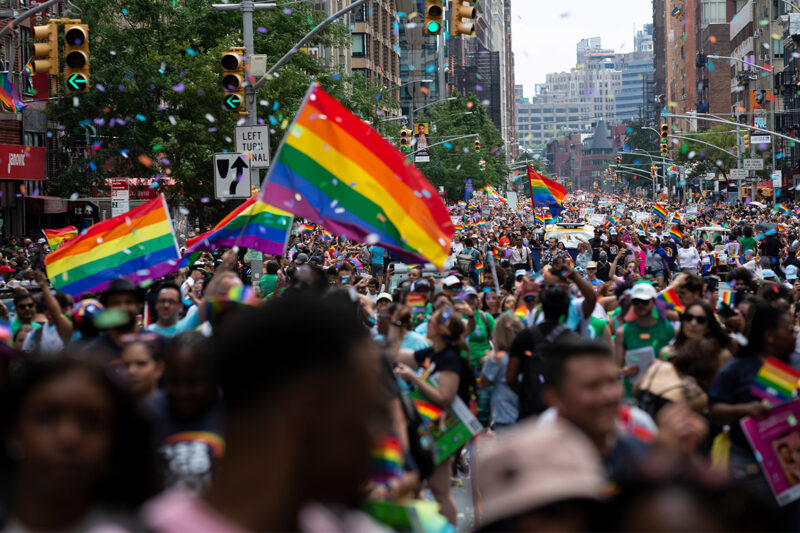Thousands of Voices Are Telling the Supreme Court: Don’t Roll Back LGBTQ Rights


President Trump has told the Supreme Court it should be legal to fire someone just because they’re LGBTQ. The President may be a bully, but he’s just one voice. Today, more than 2,000 voices from across the country joined together to tell the Supreme Court: Don’t roll back our rights.
The message came in the form of friend-of-the-court briefs—nearly 50 in all—filed in a trio of cases involving workers who lost their jobs because of who they are. , a funeral director in Michigan represented by the ACLU, was fired for being transgender. , a skydiving instructor in New York represented by the ACLU as co-counsel, was fired for being gay, as was Gerald Bostock, a child welfare services coordinator in Georgia.
For decades, federal law has protected workers like Aimee, Don, and Gerald from losing their jobs because they are lesbian, gay, bisexual, or transgender, but the Trump administration has asked the Supreme Court to reverse years of progress. Today’s filings show why the Trump administration is wrong—and why we must win. Here are some of the highlights:
There’s widespread consensus that the law already protects LGBTQ people, and the Supreme Court should say so.
- Briefs from across the political spectrum—from labor unions including the AFL-CIO and the SEIU to political conservatives including former Bush administration officials—agree that federal law bars firing workers because they are LGBTQ. Former Chair of the Republican National Committee Kenneth B. Mehlman explaining why LGBTQ rights are consistent with conservative values: All of us need a way to provide for our families, and all of us should have the freedom to compete for jobs based on what we can contribute, not who we are.
- Religious organizations and faith leaders, including the General Synod of the United Church of Christ, the Central Conference of American Rabbis, and Muslims for Progressive Values, filed a brief highlighting their shared core religious belief in the dignity and worth of all individuals, including people who are LGBTQ.
- More than 150 Members of Congress filed a brief explaining that discrimination against people because they are LGBTQ is prohibited under federal law, even though Congress has not yet enacted legislation that would say so expressly.
LGBTQ people aren’t the only ones who benefit from robust application of our nation’s antidiscrimination laws—or who would be harmed if the Supreme Court takes those protections away.
- Businesses from Apple to Zillow filed a brief arguing that that affirming protections for LGBTQ workers would strengthen their ability to recruit and retain top talent, to generative innovative ideas by drawing on a greater breadth of perspectives, and to attract and better serve a diverse customer base.
- Over 100 states, cities, counties, and mayors filed a brief explaining how workplace discrimination threatens people’s ability to meet basic needs like housing and healthcare, forcing local governments to fill the gap when community members cannot provide for themselves.
- Women CEOs and other C-suite executives, including Sheryl Sandberg and Shonda Rhimes, filed a brief showing that, if employers are allowed to make decisions based on sex stereotypes, that would limit opportunities for all women to advance in the workplace.
Rolling back the clock on workplace protections would have devastating effects.
- The American Medical Association and other national medical associations filed a brief demonstrating that workplace discrimination harms the health of LGBTQ people.
- Civil rights organizations filed a brief spotlighting the particular need for LGBTQ people of color, who suffer far higher rates of job discrimination than their white counterparts, to remain protected in the workplace.
- Anti-poverty organizations filed a brief showing the distinctive harms of anti-LGBTQ discrimination not only on workers, but also on their children, the LGBTQ community, and society at large.
It’s no surprise that workers like Aimee, Don, and Gerald have their livelihoods on the line this fall. But as today’s filings make clear, the stakes couldn’t be higher—for all of us.
The full list of the briefs, including links to the full text, will be updated as the briefs are filed.

